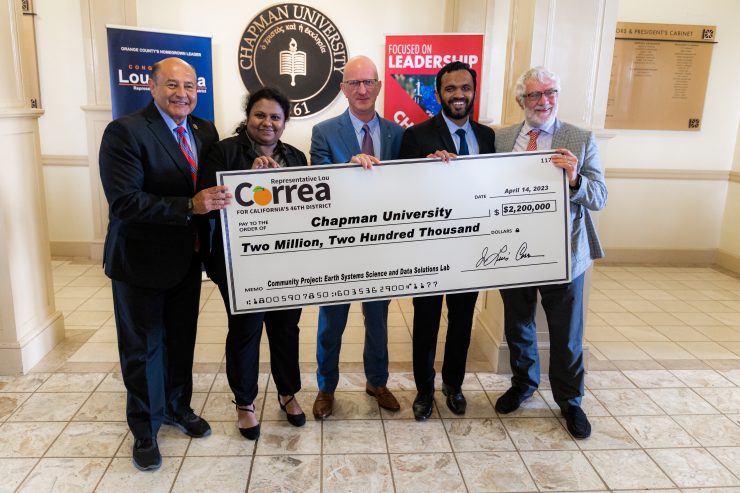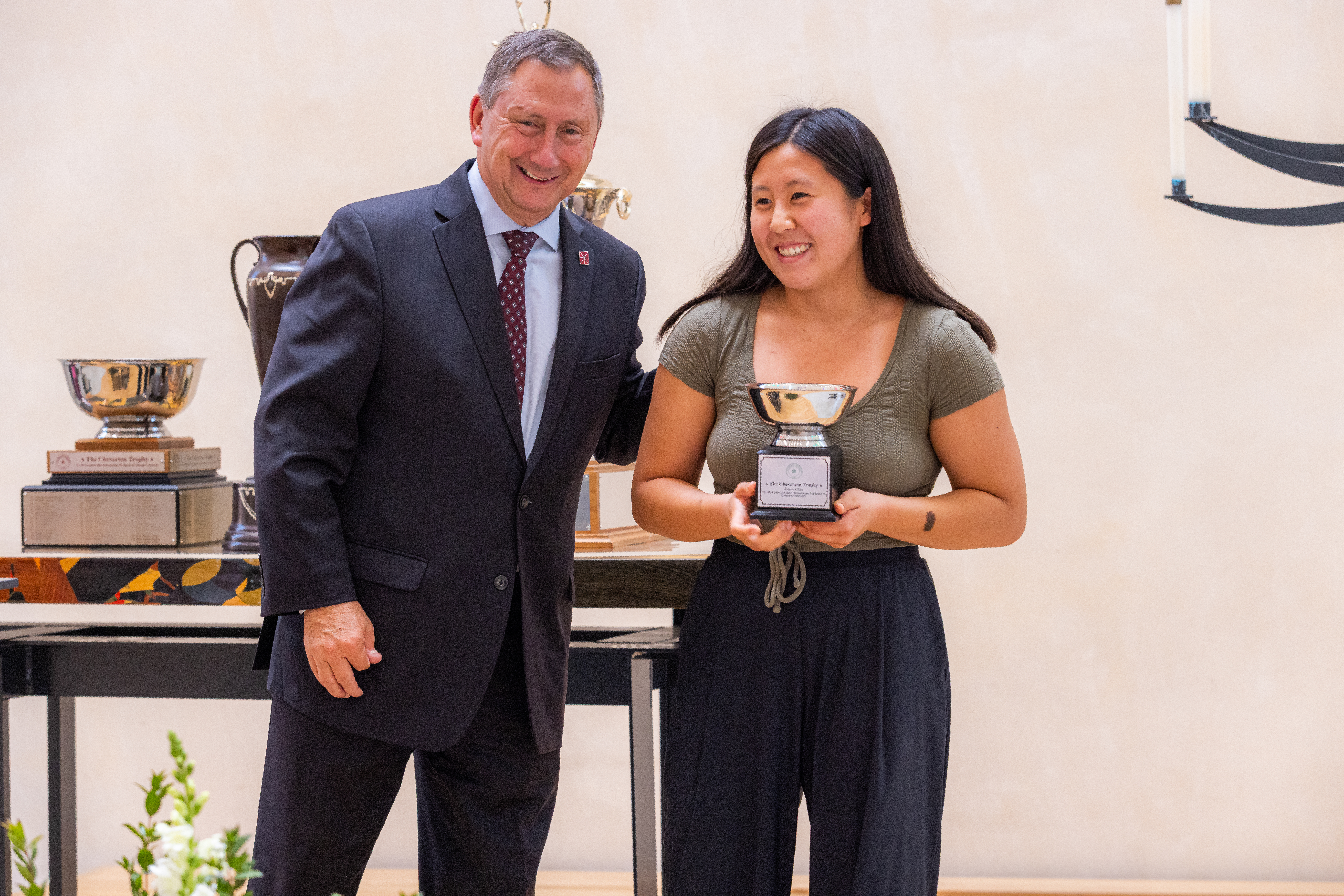On April 14, Congressman Lou Correa presented Chapman with $2.2 million in federal funding for the university’s Earth Systems Science Data Solutions Lab, which uses data and artificial intelligence to predict drought and other climate change challenges.
“We’re investing today in a tremendous, first-class university to train Ph.D. candidates and students in the [surrounding] community to understand our planet,” said Correa at the event in Chapman’s Memorial Hall.
Chapman University’s Earth Systems Science Data Solutions Lab is an innovative research facility dedicated to utilizing advanced data analysis techniques to better understand and address pressing environmental issues. The lab is housed within the Schmid College of Science and Technology and is led by a team of multidisciplinary researchers with expertise in fields such as geology, biology, computer science and statistics.
The lab team’s recent studies have focused on the impact of aerosols on the retreat of the Sierra Nevada glaciers in California, the use and validation of satellite observations to assess salinity of the state’s agricultural soils, and drought projections.
“The work being done in our Earth Systems Science Data Solutions Lab is not abstract, it provides policymakers with the data to make decisions that affect us all,” said Chapman University President Daniele C. Struppa. “This is work and cutting-edge technology that has an impact on how we predict, prepare for and respond to drought in our region and globally.”
Citing California’s recent extreme weather, Correa emphasized the need to understand how to predict and prepare for weather on a global scale.
“The world is more and more interconnected. The research [being conducted] here will help people around the world survive drought and other cataclysmic events,” he said.
The funding is part of nearly $30 million that Rep. Correa prioritized for community projects throughout the state’s 46th congressional district as part of the Fiscal Year 2023 omnibus appropriations bill approved last year by President Biden. Rep. Correa delivered to Chapman a $1 million grant to fuel the lab’s research in 2022.




